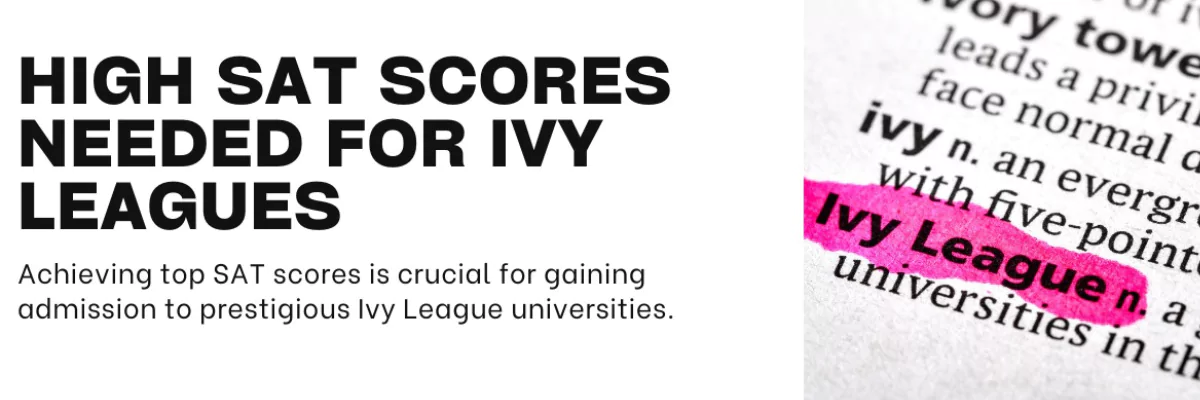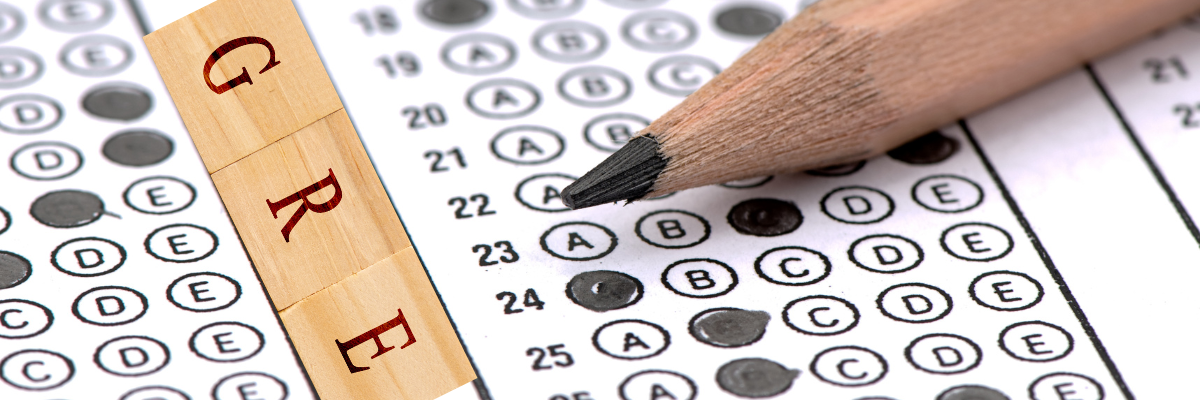22 Jul 2024 | Good SAT Scores: Ivy League Plus Edition
0
92
Understanding the Importance of SAT Scores for Ivy League Admissions
Securing a spot at an Ivy League university is a dream for many students who aspire to study abroad. The SAT (Scholastic Assessment Test) plays a critical role in this journey, and achieving a top score can significantly enhance your chances of acceptance. In this article, we will explore the SAT scores required for Ivy League universities, offering insights and strategies to help you reach your goal.
Why SAT Scores Matter
Standardized Evaluation
The SAT provides a standardized measure to compare applicants from diverse educational backgrounds. It levels the playing field, allowing admissions officers to assess each student's academic abilities and critical thinking skills objectively.
Academic Potential
High SAT scores indicate a student's capability to succeed in rigorous academic environments. They reflect not only knowledge but also the ability to apply that knowledge effectively under pressure.
Role of SAT Scores in Ivy League Admissions
Ivy League universities are known for their academic excellence and highly competitive admissions processes. High SAT scores are crucial to standing out among a pool of exceptionally qualified applicants.
SAT Score Requirements for Ivy League Universities
General SAT Score Range
While specific SAT score requirements can vary, a general guideline for competitive Ivy League admissions includes:
SAT Composite Score: 1450-1600
Evidence-Based Reading and Writing (EBRW): 700-800
Math: 700-800
SAT Score Requirements for Individual Ivy League Schools
Each Ivy League university has its own average SAT score range for admitted students. Here are the top SAT scores typically required for each institution:
Harvard University: 1470-1600
Princeton University: 1460-1600
Yale University: 1460-1600
Columbia University: 1450-1600
University of Pennsylvania: 1450-1600
Brown University: 1440-1570
Dartmouth College: 1440-1560
Cornell University: 1430-1560
Tips to Achieve Top SAT Scores
Develop a Study Plan
Creating a structured study plan is crucial for SAT preparation.
Set Clear Goals: Determine your target score based on the average SAT scores of admitted students at your chosen Ivy League schools.
Consistent Study Schedule: Allocate regular study time, focusing on different sections of the SAT. Consistency is key.
Utilize High-Quality Study Materials
Investing in quality study materials can make a significant difference.
SAT Prep Books: Use reputable SAT prep books with practice tests and detailed explanations.
Online Resources: Leverage online platforms offering practice questions, video tutorials, and study guides.
Practice Regularly
Consistent practice is key to mastering the SAT.
Full-Length Practice Tests: Take full-length practice tests under timed conditions to simulate the actual exam.
Analyze Mistakes: Review your practice test results to identify and address weaknesses.
Focus on Weak Areas
Identify and improve your weak areas through targeted practice.
Diagnostic Tests: Use diagnostic tests to pinpoint areas that need improvement.
Targeted Practice: Allocate more study time to challenging topics and question types.
Time Management
Effective time management during the SAT is crucial.
Pacing Strategies: Practice pacing yourself to ensure you complete each section within the allotted time.
Skip and Return: If you encounter difficult questions, skip them and return later to maximize your time.
Book Free Consultation
Benefits of High SAT Scores
Enhanced Admission Chances
A high SAT score significantly enhances your college application.
Competitive Edge: High scores set you apart from other applicants, showcasing your academic potential.
Scholarship Opportunities: Many Ivy League schools offer merit-based scholarships to students with exceptional SAT scores.
Foundation for College Success
The skills you develop while preparing for the SAT can benefit you in college.
Critical Thinking: The SAT enhances your critical thinking and problem-solving skills.
Academic Readiness: High scores reflect your preparedness for the academic challenges of college.
Book Free English Proficiency Tests
Creating Your SAT Study Schedule
Set Realistic Goals
Understanding the average SAT scores for your target schools can help you set achievable goals.
Research Requirements: Check the specific score ranges for each Ivy League school you’re interested in.
Personal Benchmark: Take a diagnostic test to establish your current level and set a realistic improvement goal.
Daily Study Routine
Consistency in your study routine is essential for success.
Morning Sessions: Dedicate your mornings to practice tests and problem-solving exercises.
Afternoon Review: Use your afternoons to review errors and understand challenging concepts.
Evening Reading: Enhance your reading comprehension by reading articles, essays, and books.
Weekly Practice Tests
Taking full-length practice tests every week can help build stamina and improve your test-taking skills.
Simulate Test Conditions: Take practice tests under timed conditions to get used to the pressure.
Review Thoroughly: Analyze your results to identify patterns in your mistakes and adjust your study plan accordingly.
Effective Study Techniques for the SAT
Active Reading Strategies
Improving your reading comprehension can significantly boost your EBRW score.
Annotate Passages: Make notes and highlight key points while reading.
Summarize Paragraphs: Practice summarizing each paragraph in your own words to enhance understanding.
Math Mastery
Focusing on math fundamentals and advanced concepts is crucial.
Conceptual Understanding: Ensure you understand the underlying concepts behind each math problem.
Formula Familiarity: Memorize essential formulas and practice applying them in different contexts.
Writing and Language Skills
Excelling in the writing and language section requires strong grammar and editing skills.
Grammar Rules: Brush up on grammar rules and practice identifying errors in sentences.
Editing Practice: Edit passages to improve clarity and conciseness.
Mental and Physical Preparation
Stress Management
Managing stress is essential for optimal performance on test day.
Relaxation Techniques: Practice deep breathing, meditation, or yoga to stay calm.
Positive Visualization: Visualize yourself succeeding and remaining confident during the test.
Healthy Lifestyle
Maintaining a healthy lifestyle can improve your focus and energy levels.
Balanced Diet: Eat nutritious meals to fuel your brain.
Regular Exercise: Incorporate physical activity into your routine to boost your mood and concentration.
Join the Global Community
On Test Day: Strategies for Success
Morning Routine
Start your test day with a calm and focused mindset.
Healthy Breakfast: Eat a balanced breakfast to ensure you have sustained energy.
Arrive Early: Get to the test center early to avoid any last-minute stress.
During the Test
Stay focused and manage your time effectively during the test.
Read Instructions Carefully: Ensure you understand the instructions before starting each section.
Pace Yourself: Keep track of time and pace yourself to complete all questions.
Stay Positive: Maintain a positive attitude and stay confident throughout the test.
For more assistance please visit us study abroad, study in Australia, study abroad in Poland, study in Canada, Study abroad UK, study in Germany, study in New Zealand, study in Finland, study abroad in Italy, and many other countries
Conclusion
Achieving a top SAT score is a crucial step toward gaining admission to Ivy League universities. By understanding the importance of SAT scores, developing a strategic study plan, and focusing on key strategies, you can maximize your chances of success. Start your preparation early, practice consistently, and aim high to turn your dream of studying at an Ivy League institution into reality.
FAQs
1. How important are SAT scores for Ivy League admissions?
SAT scores are a critical component of the Ivy League admissions process, as they provide a standardized measure to compare applicants.
2. Can I get into an Ivy League school with a low SAT score?
While a high SAT score is essential, other factors like extracurricular activities, essays, and recommendations also play a significant role.
3. How many times should I take the SAT?
It's recommended to take the SAT 2-3 times to maximize your score potential, as many schools consider your highest scores.
4. Are there any SAT prep courses that you recommend?
There are numerous reputable SAT prep courses, such as those offered by Khan Academy, Princeton Review, and Kaplan.
5. How early should I start preparing for the SAT?
It's advisable to start preparing at least 6-12 months before your intended test date to ensure ample time for study and practice.


